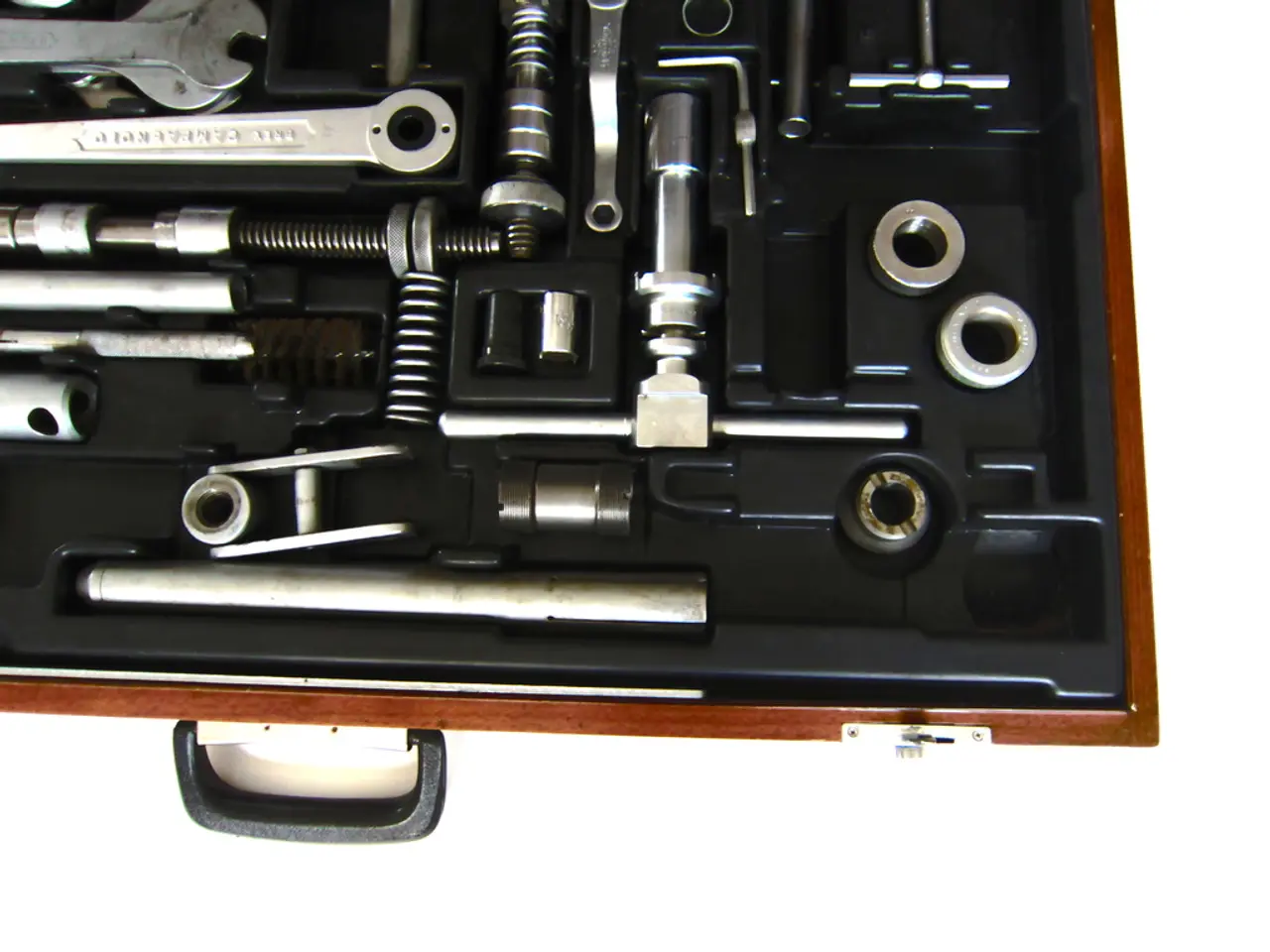Streamlining Healthcare Administration: The Role of Advanced Technologies in Enhancing Efficiency in Managed Healthcare Services
In the rapidly evolving landscape of healthcare, organizations seeking comprehensive utilization management solutions should look towards platforms offering integrated approaches to prior authorization, medication therapy management, and compliance optimization.
Modern technology platforms are transforming utilization management operations by integrating multiple functions into cohesive workflows, reducing administrative burden, and improving decision-making capabilities. Key emerging technology solutions for effective utilization management and operational efficiency improvements include:
- Artificial Intelligence (AI) and Machine Learning (ML) that analyze large healthcare data volumes to predict outcomes, automate routine decisions, identify anomalies, and provide clinical and operational recommendations.
- Robotic Process Automation (RPA) and Hyperautomation, which orchestrate complex workflows end-to-end, automating repetitive tasks and adapting processes in real time to optimize operational efficiency.
- Electronic Prior Authorization (ePA) and APIs based on HL7 FHIR standards, digital prior authorization systems that automate routine approvals, triage requests efficiently, and integrate seamlessly with providers’ electronic health records (EHRs).
- Interoperability and Data Integration Platforms, systems enabling seamless data exchange across clinical, laboratory, pharmacy, and imaging domains, reducing redundancies, improving coordination, and enabling real-time analytics for workflow optimization.
- Internet of Medical Things (IoMT) and Connected Devices, real-time patient monitoring devices that generate continuous data streams analyzed by AI to predict risks and trigger interventions.
- Cloud-Native Architectures, cloud platforms providing scalable, flexible infrastructure to manage large, complex healthcare data, supporting real-time analytics, clinical decision support, and system interoperability essential for efficient operations.
- Electronic Health Records (EHR) Optimization, user-friendly, integrated EHRs reducing administrative burden, preventing duplicative testing, and centralizing data for improved utilization review and cost management.
- Strategic Medical Technology Asset Management (MTAS), lifecycle-based planning for acquiring, upgrading, and decommissioning medical technology ensuring long-term operational efficiency, security compliance, and alignment with clinical goals.
These technologies collectively transform utilization management by automating routine tasks, enabling predictive analytics, improving data flow, and aligning technology infrastructure with regulatory mandates and clinical workflows. They reduce manual effort, speed decision-making, enhance compliance, and optimize resource use across healthcare operations.
Star Ratings Optimization is a key aspect of utilization management, aimed at maintaining and improving Medicare Part D star ratings through proactive adherence programs and quality initiatives. Data-Driven Insights are provided by advanced analytics capabilities within technology platforms, offering actionable intelligence for strategic decision-making and continuous improvement. Medication Therapy Management optimizes pharmaceutical care through comprehensive medication reviews and therapeutic interventions.
Scalability is essential for technology platforms, allowing them to grow with the organization as business needs evolve. Grievance Management involves efficiently handling member complaints and appeals while ensuring full regulatory compliance and member satisfaction. Successful technology implementation lies in choosing solutions that align with organizational goals and provide the flexibility to adapt to future challenges.
Healthcare leaders evaluating utilization management solutions should consider vendor experience, implementation support, customization, interoperability readiness, analytics and transparency, security and reliability. Seamless Integration is a key characteristic of effective technology platforms, enabling them to connect with existing infrastructure without disrupting current operations.
Emerging trends in utilization management technology include artificial intelligence integration, predictive analytics, and enhanced member engagement tools. Prior Authorization Excellence is a critical area of contemporary utilization management, focusing on streamlining the approval process for medications, procedures, and treatments.
The 2025 Medicare Part D redesign aims to support faster utilization management decisions, which in turn support medication adherence, reduce complaints and appeals, and strengthen performance on Star measures tied to bonus payments. CMS has set deadlines for 2026 and 2027, including expedited prior authorization decisions within 72 hours and standard requests within 7 calendar days starting January 1, 2026, and broader FHIR-based APIs and public PA metrics requirements starting January 1, 2027.
Agadia's utilization management suite, including PAHubTM for prior authorization, RxMTM for medication therapy management, and RxSentinel for adherence and Star Ratings, has been adopted by more than 40 health plans and PBMs, covering approximately 70 million lives. The right technology partner can provide the tools and expertise needed to navigate current challenges while building capabilities for future success.
- Science plays a significant role in the advancement of health-and-wellness industries, as technologies such as Artificial Intelligence (AI), Machine Learning (ML), and Robotic Process Automation (RPA) are employed to analyze medical-conditions data, automate routine decisions, and provide strategic insights for utilization management.
- Incorporating technology solutions, like Electronic Prior Authorization (ePA) and Interoperability and Data Integration Platforms, into health-care infrastructure can result in improved handling of complex workflows, increased data flow efficiency, and a more seamless exchange of information among clinical, laboratory, pharmacy, and imaging domains.




